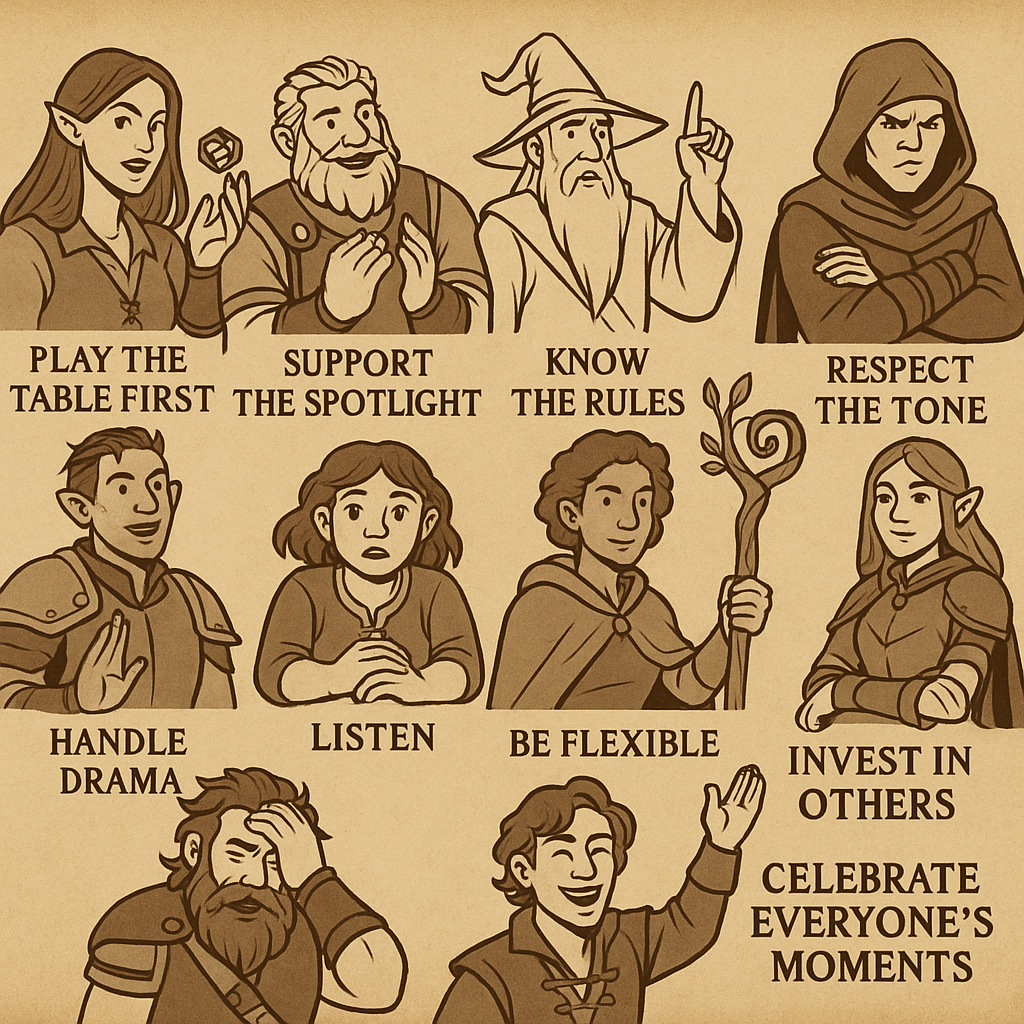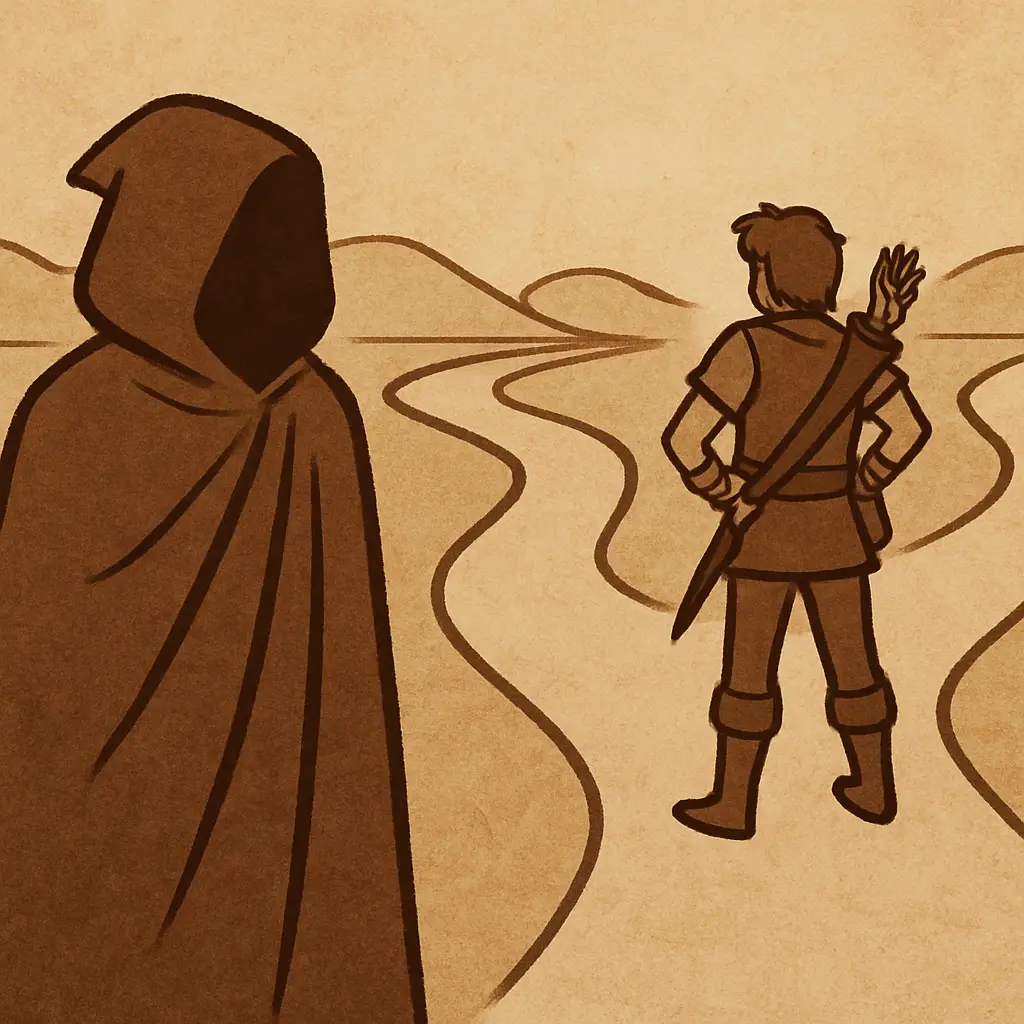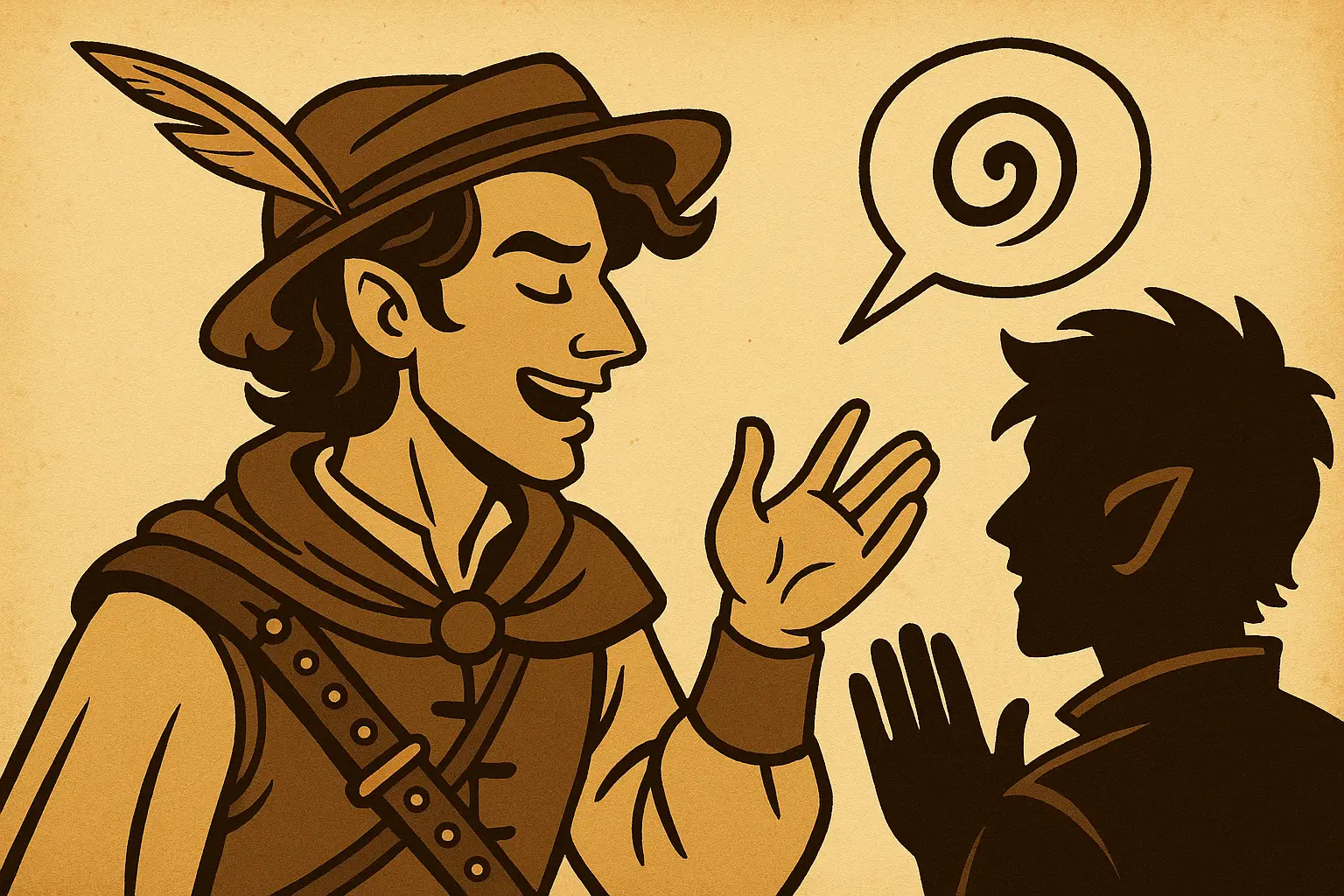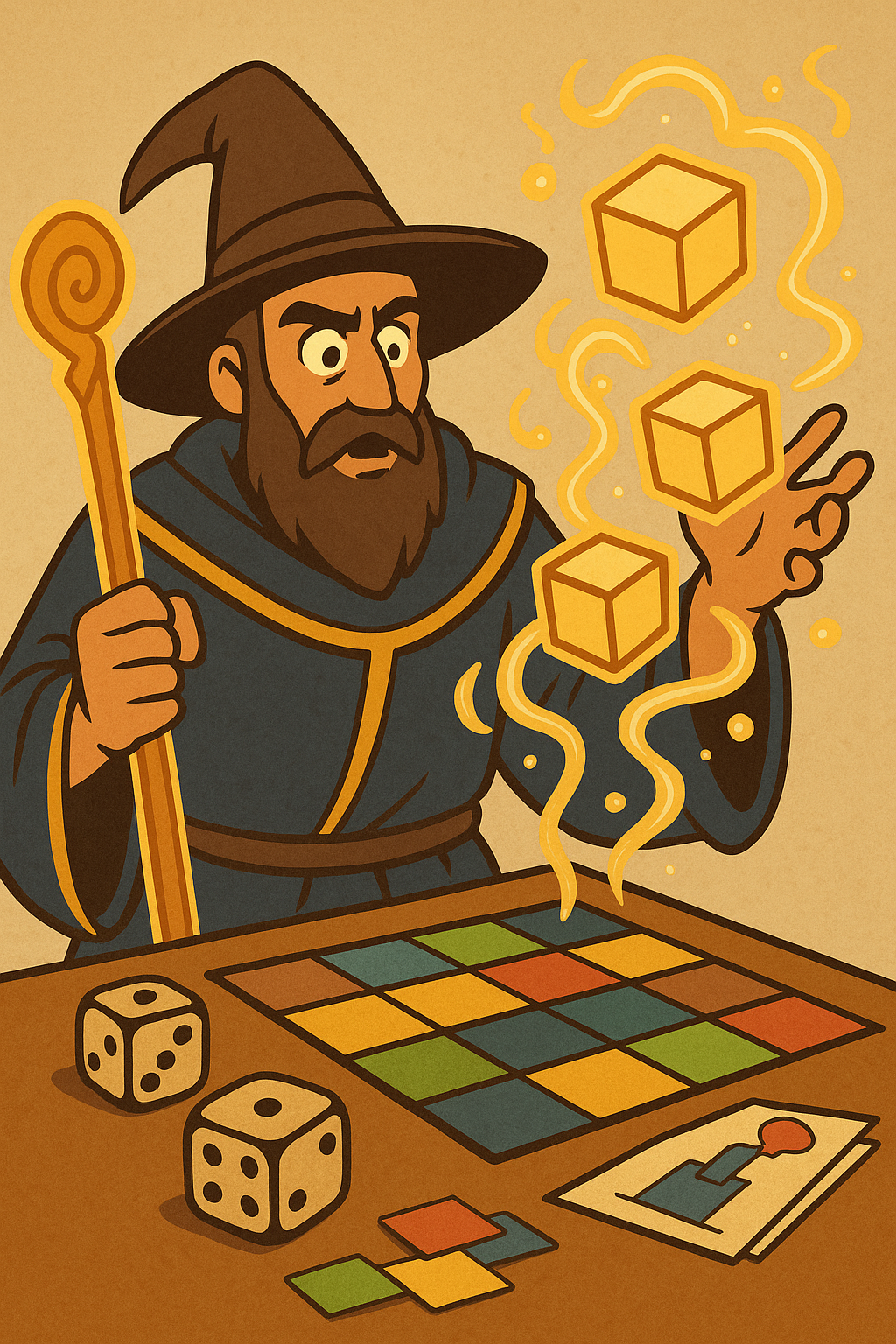Etiquette, Empathy, and Subtle Tricks for Being the MVP of Any Party
Tabletop roleplaying games—D&D, Pathfinder, FATE, Vampire, whatever your flavor—is a peculiar kind of magic. You take a handful of strangers (or friends you sometimes want to throw dice at), give them character sheets, pour in some world-building, sprinkle in snacks and caffeine, and then ask them to collaboratively tell a story with emotions, math, and murder.
Beautiful chaos.
But in that chaos, certain players rise above. They’re not always the loudest, or the ones with the flashiest backstories or the biggest damage output. No, the truly great TTRPG players are the ones who elevate the entire table.
How? Not through rules lawyering or spotlight-hogging, but through the secret commandments—the unwritten rules—that separate a player from a party legend.
This blog is your guide to those rules.
Whether you’re a veteran dragon-slayer or a fresh-faced dice-slinger, these ten principles will help you make every game more fun, smooth, and meaningful—for you and everyone around you.
Let’s roll.

🎭 Rule #1: Play Your Character—But Play the Table First
Yes, you made a haunted tiefling assassin who speaks only in riddles. And yes, your backstory is so grim it needs its own trigger warning. That’s great.
But here’s the thing: your character isn’t the only one at the table.
Great players know how to walk the line between self-expression and collaboration. They play their character—but never at the expense of the party’s flow, energy, or narrative momentum.
Signs you’re doing this right:
- You still roleplay quirks and flaws, but you don’t derail scenes for it.
- You might disagree with the party in-character, but you don’t stonewall group decisions.
- You adjust your pace and energy based on what the table needs, not just what your character would do.
Quick tip: When in doubt, ask yourself: “Is this choice going to create fun for everyone, or just for me?”
🤝 Rule #2: Support the Spotlight—Don’t Hog It
We’ve all seen it: the player who always jumps in first. Who negotiates every deal, loots every chest, makes every kill, and recounts their character’s trauma during someone else’s wedding.
Don’t be that player.
The real MVP isn’t the one who hogs the spotlight—it’s the one who reflects it. The one who gives other players space to shine.
- Your Bard doesn’t have to do every persuasion check. Maybe let the Paladin have that conversation with the priest.
- Your Rogue doesn’t have to solo every stealth mission. Invite the Warlock to invisibility tag along.
- When someone else is roleplaying a big moment? Sit back. Let them have it. Maybe even hype them up.
Golden move: Ask questions in-character that prompt another player’s character to talk. “Wait—you said you’ve been to this city before. What happened here?”
Now you’re not just playing. You’re setting the scene for someone else’s spotlight.
🧠 Rule #3: Know the Rules (But Don’t Wield Them Like a Club)
You don’t have to memorize the entire rulebook. But great players take responsibility for their own mechanics. That means:
- Knowing what your spells and abilities do.
- Keeping your character sheet up to date.
- Rolling with confidence—and integrity.
That said: Don’t become a walking pop-up ad for page numbers. If you’re always correcting others, disputing the GM, or arguing mid-session about conditional modifiers, you’re grinding the fun to a halt.
Best practice: If you notice a mistake that isn’t game-breaking, let it slide—or ask about it after the session.
Even better: Offer help, not correction.
“Hey, if it helps, I think the way that spell works is like this—but totally up to the GM.”
You’re a player, not a referee. Be helpful, not heavy-handed.
🕯️ Rule #4: Respect the Tone and Mood
Your Barbarian might be hilarious. Your Goblin Bard might always be “on.” But when the party’s mourning a fallen comrade, or navigating a tense diplomatic encounter?
Read the room.
There’s a difference between humor that elevates the table, and jokes that fracture immersion. Great players know how to:
- Let emotional moments breathe.
- Hold tension when the GM is building suspense.
- Let silence be a part of the story.
And when the tone does shift toward comedy, great players lean in just enough to bring everyone along—never turning the campaign into a meme fest unless that’s the vibe.
Golden skill: Learn to ride the tone, not fight it. That’s where the real magic is.
⌛ Rule #5: Respect Time—Both Real and Narrative
This one’s twofold.
In Real Life:
- Show up on time.
- Be ready to play.
- Minimize off-topic distractions when scenes are rolling.
Every minute you’re flipping through spells, eating loudly into your mic, or debating unrelated media is time everyone else isn’t playing.
In the Game:
- Don’t take 20 minutes planning your turn.
- Don’t dominate every conversation.
- Share the tempo. Let moments pass the baton.
Subtle trick: When it’s not your turn, be present. Help others shine. React visibly. Laugh. Gasp. Be part of the moment.
You’re not waiting for your turn. You’re in a story with everyone else.
👂 Rule #6: Listen. No—Really Listen.
Not just to the GM. To the other players. To what people say and what they don’t. Great players aren’t just waiting to talk—they’re building a mental map of what everyone else is trying to do.
You’ll pick up on:
- Backstory threads you can ask about.
- Goals you can help advance.
- Character choices you can echo or contrast.
Why it matters:
When you engage with someone else’s roleplay, they feel seen. They feel valued. They feel like their character exists.
You become the player who builds bonds, not just builds builds.
🧙 Rule #7: Be Flexible with the Story
That heist you planned for three sessions? It just got derailed by a surprise demon cult. The NPC you thought was an ally? She’s a changeling assassin. The town you were going to rest in? Burned to the ground.
Welcome to TTRPGs.
Great players don’t resist change. They adapt, reframe, and help the story move forward.
Bad habits to ditch:
- “But my plan doesn’t work anymore!”
- “I would never go along with this plot twist.”
- “This wasn’t supposed to happen!”
Great players:
- Look for ways to turn surprises into character development.
- Use setbacks as springboards for interesting choices.
- Say “yes, and…” instead of “no, but…”
Your GM is telling a story with you, not at you. The best scenes are the ones you didn’t expect.
🧑🚀 Rule #8: Invest in Others, Not Just Yourself
It’s easy to fall into the “main character” mindset. But great players know that it’s not about being the hero—it’s about being a hero in a shared story.
That means:
- Asking about someone else’s backstory.
- Helping another PC achieve their goals.
- Noticing when someone’s been quiet and inviting them in.
- Building character bonds—rivalries, romances, mentorships—that enrich the table.
Power move: Write a one-sentence character goal that includes another PC. It makes scenes richer and encourages collaborative storytelling.
🧹 Rule #9: Handle Drama Like an Adult
Tensions happen. A misread line. A rule disagreement. A moment where one character’s actions upset another.
The worst players double down. The best players pause, reflect, and address it with kindness and honesty.
- Use “I” statements: “I felt kind of sidelined in that scene, just wanted to check in.”
- Avoid blame: “Can we talk about how that scene ended? I think we were reading it differently.”
- Keep it offstage: Bring up issues between sessions, not in the middle of roleplay.
Also? Know when the drama is in-character only. Your Rogue calling the Cleric a fool doesn’t mean you, the player, think they suck.
Communication isn’t a buzzword. It’s the glue that holds long campaigns together.
🎉 Rule #10: Celebrate Everyone’s Moments
That Nat 20? That clever spell combo? That tragic death scene? Treat it like you’re watching a great movie, not just taking notes.
Clap. Cheer. Gasp. Laugh.
The best players treat each game session like a show worth watching. Not just for themselves, but for everyone else at the table.
The game feels more alive. The story gains weight. And people start playing with each other instead of around each other.
“Remember when your Wizard caught that fireball mid-air and threw it back?”
“You were on fire that session.”
“That scene broke me—in a good way.”
These are the moments that make the game legendary. Great players notice them, name them, and celebrate them.
🧠 Final Thoughts: The Best Player Isn’t the Strongest. They’re the Smartest—and the Kindest.
These rules aren’t about being the most optimized build or having the best improv chops. They’re about playing in a way that makes everyone feel like they belong.
And that? That’s the kind of player people remember. The one who’s always invited back. The one who becomes part of the group’s mythology.
The MVP isn’t the one who wins the game.
It’s the one who makes the game worth playing.
So whether you’re stepping into your first campaign or your hundredth, take these rules to heart. Live them. Share them. And never stop rolling.
🎲🖤


